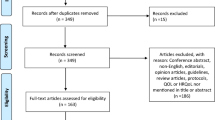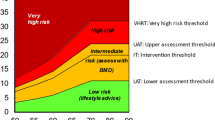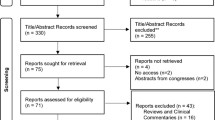Abstract
Menopause can be defined as the complete interruption of menstrual cycles. The period which precedes this event is termed climacteric. Improvements in medical-care have brought an increase in the life expectancy of people with disabilities and increased the number of women with disabilities who experience climacteric and menopause. The objective of this review was to analyze available data on the health care, health status and symptoms perceived by women with disabilities during the climacteric and menopause period. A search in the literature was performed considering nine electronic databases—Medline, Cinahl, Scielo, Lilacs, SportDiscus, Web of Science, Academic Search Premier and PsycInfo. The inclusion criteria were: (a) field study with the participation of climacteric and/or post-menopausal women with some kind of disability; (b) evaluation of the health conditions of the participating women, with the care taken in order to maintain their health during this period and/or the symptoms perceived during climacteric. Seventeen studies were selected. Specific characteristics of the climacteric and menopause process in disabled women were found in all the studies. This review highlights the necessity to create a questionnaire and evaluation methods for assessing the health status and healthcare, as well as the specific climacteric symptoms of women with disabilities.

Similar content being viewed by others
References
Dias, R., Oliveira, A.T., Vespasiano, B.S., Nascimento, D.C., Prestes, J.: O treinamento de força melhora os sintomas climatéricos em mulheres sedentárias na pós-menopausa. (Strength training improves menopausal symptoms in sedentary postmenopausal women.) Revista ConScientiae Saúde 12(2), 249–258 (2013)
Ferreira, V.N., Chinelato, R.S.C., Castro, M.G., Ferreira, M.E.C.: Menopausa: marco biopsicossocial do envelhecimento feminino. (Menopause: biopsychosocial framework of female aging.) Revista Psicologia & Saúde 25(2), 410–419 (2013)
Schmitt, A.C.B., Cardoso, M.R.A., Aldrighi, J.M.: Tendências da mortalidade em mulheres brasileiras no climatério. (Trends in mortality in Brazilian postmenopausal women.) Revista Brasileira de Crescimento e Desenvolvimento Humano 18(1), 11–15 (2008)
Pereira, W.M.P., Schimitt, A.C.B., Buchalla, C.M., Reis, A.O.A., Aldrighi, J.M.: Ansiedade no climatério: prevalência e fatores associados. (Anxiety in menopause: prevalence and associated factors.) Revista Brasileira de Crescimento e Desenvolvimento Humano 19(1), 89–97 (2009)
Komm, B.S., Mirkim, S.: The tissue selective estrogen complex: a promising new menopausal therapy. Pharmaceuticals 5, 899–924 (2012)
Maltais, M.L., Desroches, J., Dionne, I.J.: Changes in muscle mass and strength after menopause. J. Musculoskelet. Neuronal Interact. 9(4), 186–197 (2009)
Cipriani, C., Romagnoli, E., Carnevale, V., Raso, I., Scarpiello, A., Angelozzi, M., Tancredi, A., Russo, S., De Lucia, F., Pepe, J., Minisola, S.: Muscle strength and bone in healthy women: effect of age and gonadal status. Hormones 11(3), 325–332 (2012)
Mirkin, S., Pickar, J.H.: Management of osteoporosis and menopausal symptoms: focus on bazedoxifene/conjugated estrogen combination. Int. J. Women’s Health 13(5), 465–475 (2013)
Willis, D.S., Wishart, J.G., Muir, W.J.: Carer knowledge and experiences with menopause in women with intellectual disabilities. J. Policy Pract. Intellect. Disabil. 7(1), 42–48 (2010)
Carr, J., Hollins, S.: Menopause in women with learning disabilities. J. Intellect. Disabil. Res. 39(2), 137–139 (1995)
Schupf, N., Zigman, W., Kapell, D., Lee, J.H., Kline, J., Levin, B.: Early menopause in women with Down’s Syndrome. J. Intellect. Disabil. Res. 71(3), 264–267 (1997)
Seltzer, G.B., Shupf, N., Wu, H.S.: A prospective study of menopause in women with Down’s Syndrome. J. Intellect. Disabil. Res. 45(1), 1–7 (2001)
Welner, S.L., Simon, J.A., Welner, B.: Maximizing health in menopausal women with disabilities. Menopause 9(3), 208–219 (2002)
McCarthy, M.: Going through the menopause: perceptions and experiences of women with intellectual disability. J. Intellect. Dev. Disabil. 27(4), 281–295 (2002)
Dormire, S., Becker, H.: Menopause health decision support for women with physical disabilities. J. Obstet. Gynecol. Neonatal. Nurs. 36(1), 97–104 (2007)
Ducharme, S.: Menopause and women with spinal cord injury. J. Sex. Spinal Cord Injury 72–75 (2008)
Harrison, T., Becker, H.: A qualitative study of menopause among women with disabilities. Adv. Nurs. Sci. 30(2), 123–138 (2007)
Shupf, N., Pang, D., Patel, B.N., Silverman, H., Shubert, R., Lai, F., Kline, J.K., Stern, Y., Ferin, M., Tycko, B., Mayeux, R.: Onset of dementia is associated with age at menopause in women with Down’s Syndrome. Ann. Neurol. 54(4), 433–438 (2003)
Coppus, A.M.W., Evenhuis, H.M., Verbene, G.J., Visser, F.E., Eikeleboom, P., Van Gool, W.A., Janssens, A.C.J.W., Van Dujin, C.M.: Early age at menopause is associated with increased rink of dementia and mortality in women with Down Syndrome. J. Alzheimer’s Dis. 19, 545–550 (2010)
Cosgrave, M.P., Tyrrell, J., MCCarron, M., Gill, M., Lawlor, B.A.: Age at onset of dementia and age of menopause in women with down’s syndrome. J. Intellect. Disabil. Res. 43(6), 461–465 (1999)
Kalpakjian, C.Z., Quint, E.H., Tate, D.G., Roller, S., Toussaint, L.L.: Menopause characteristics of women with physical disabilities from poliomyelitis. MATURITAS 56, 161–172 (2007)
Kalpakjian, C.Z., Quint, E.H., Bushnik, T., Rodriguez, G.M., Terril, M.S.: Menopause characteristics and subjective symptoms in women with and without spinal cord injury. Arch. Phys. Med. Rehabil. 91, 562–569 (2010)
Kalpakjian, C.Z., Toussaint, L.L., Quint, E.H., Reame, N.K.: Use of a standardized menopause symptom rating scale in a sample of women with physical disabilities. Menopause 12(1), 78–87 (2005)
Kalpakjian, C.Z., Lequerica, A.: Quality of life and menopause in women with physical disabilities. J. Women’s Health 15(1), 1014–1027 (2006)
Kalpakjian, C.Z., Riley, B.B., Quint, E.H., Tate, D.G.: Hormone replacement therapy and health behavior in postmenopausal polio survivors. MATURITAS 48, 1398–1410 (2004)
Willis, D.S., Wishart, J.G., Muir, W.J.: Menopausal experiences of women with intellectual disabilities. J. Appl. Res. Intellect. Disabil. 24, 74–85 (2011)
Kalpakjian, C.Z., Quint, E.H., Toussaint, L.L.: Menopause and post-polio symptoms as predictors of subjective sleep disturbance in poliomyelitis survivors. Climacteric 10, 1–62 (2007)
Willis, D.: A decade on: what have we learnt about supporting women with intellectual disabilities through the menopause? J. Intellect. Disabil. 12(1), 9–23 (2008)
Becker, H., Stuifbergen, A.K., Gordon, D.: Menopausal experiences and hormone replacement therapy use among women with physical impairments. Women’s Health Issues 12(4), 212–219 (2002)
McCarthy, M., Millard, L.: Discussing the menopause with women with learning disabilities. Br. J. Learn. Disabil. 31, 9–17 (2003)
Scherer, R.L., Lopes, A.S.: Atividade física habitual em adultos com deficiência visual: uma revisão sistemática. (Habitual physical activity in adults with visual impairment: a systematic review.) Revista Pensar a Prática 16(1), 234–247 (2013)
American College of Sports Medicine (2000)
Guimarães, A.C.A., Baptista, F.: Relationship between physical activity and menopausal symptoms. Revista Brasileira de Atividade Física e Saúde 16(2), 144–149 (2011)
Tairova, O.S., De Lorenzi, D.R.S.: Influência do exercício físico na qualidade de vida de mulheres na pós-menopausa: um estudo caso–controle. (Influence of exercise on quality of life in postmenopausal women: a case–control study.). Revista Brasileira de Geriatria e Gerontologia 14(1), 135–145 (2011)
Pitanga, C.P.S., Pitanga, F.J.G., Beck, C.C., Gabriel, R.E.C.D., Moreira, M.H.R.: Nível de atividade física para prevenção do excesso de gordura visceral em mulheres pós-menopáusicas: quanto é necessário? (Level of physical activity for prevention of excess visceral fat in postmenopausal women: how much is needed?) Arquivo Brasileiro de Endocrinologia e Metabolismo 56(6), 358–363 (2012)
Moilanen, J.M., Aalto, A.M., Raitanen, J., Hemminki, E., Aro, A.R., Louto, R.: Physical activity and change in quality of life during menopause—an 8-year follow-up study. Health Qual. Life Outcomes 10(8), 1–7 (2012)
Hicks, A.L., Martin, K.A., Ditor, D.S., Latimer, A.E., Craven, C., Bugaresti, J., McCartney, N.: Long-term exercise training in person with spinal cord injury: effects on strength, arm ergometry performance and psychological well-being. Spinal Cord 41, 34–43 (2003)
Durán, F.S., Lugo, L., Ramírez, L., Eusse, E.: Effects of an exercise program on the rehabilitation of patients with spinal cord injury. Arch. Phys. Med. Rehabil. 82, 349–354 (2001)
Thurston, R.C., Joffe, R.: Vasomotor symptoms and Menopause: findings from the Study of Women`s Health Across the Nation. Obstet. Gynecol. Clin. N. Am. 38(3), 489–501 (2011)
Rodrigues, A.V., Vidal, W.A.S., Lemes, J.A., Gônora, C.S., Neves, T.C., Santos, S.M.S., Souza, R.B.: Estudo sobre as características da dor em pacientes com lesão medular. (Study on the characteristics of pain in patients with spinal cord injury) Acta Fisiátrica 9(3), 171–177 (2012)
Author information
Authors and Affiliations
Corresponding author
Rights and permissions
About this article
Cite this article
de Almeida, E.W., Greguol, M. Healthcare for Women with Disabilities in the Climacteric and Menopause. Sex Disabil 33, 279–298 (2015). https://doi.org/10.1007/s11195-014-9390-4
Published:
Issue Date:
DOI: https://doi.org/10.1007/s11195-014-9390-4




